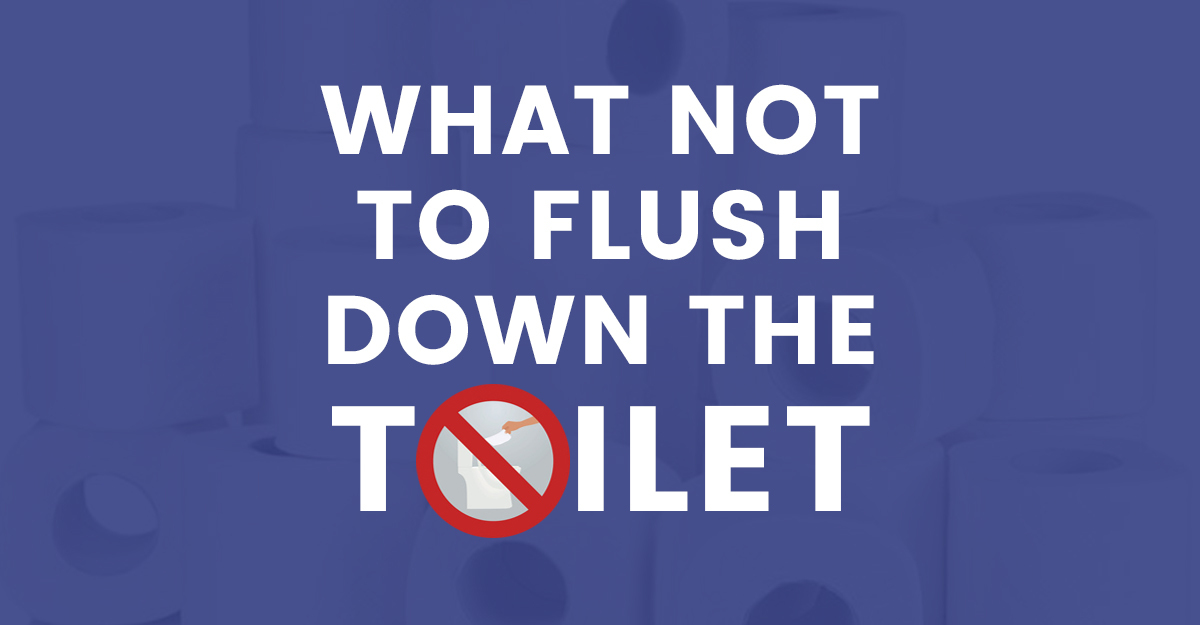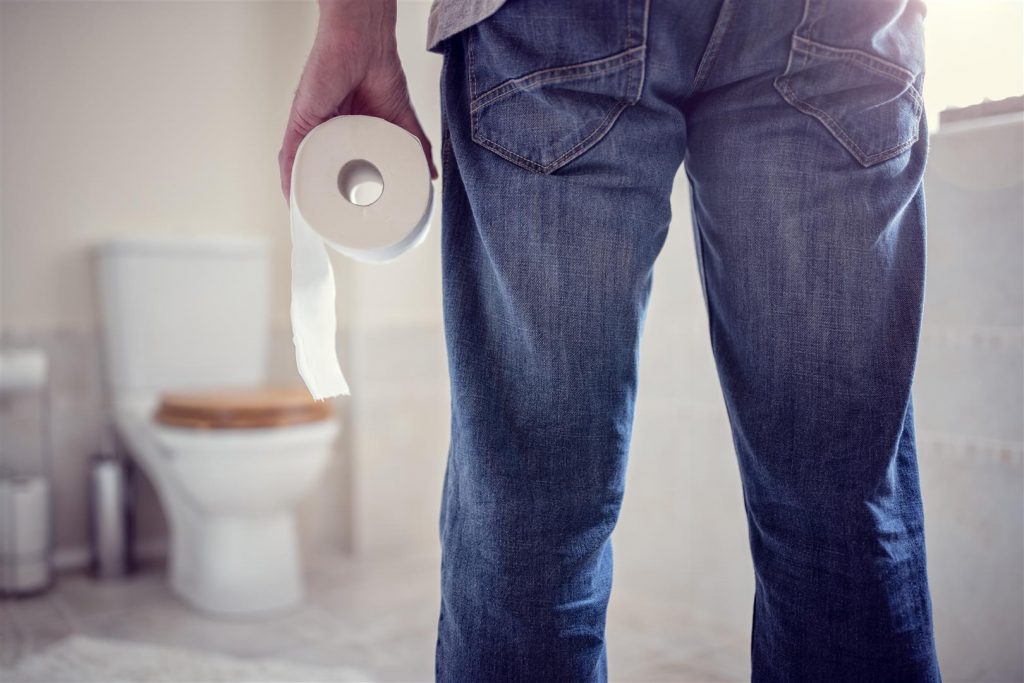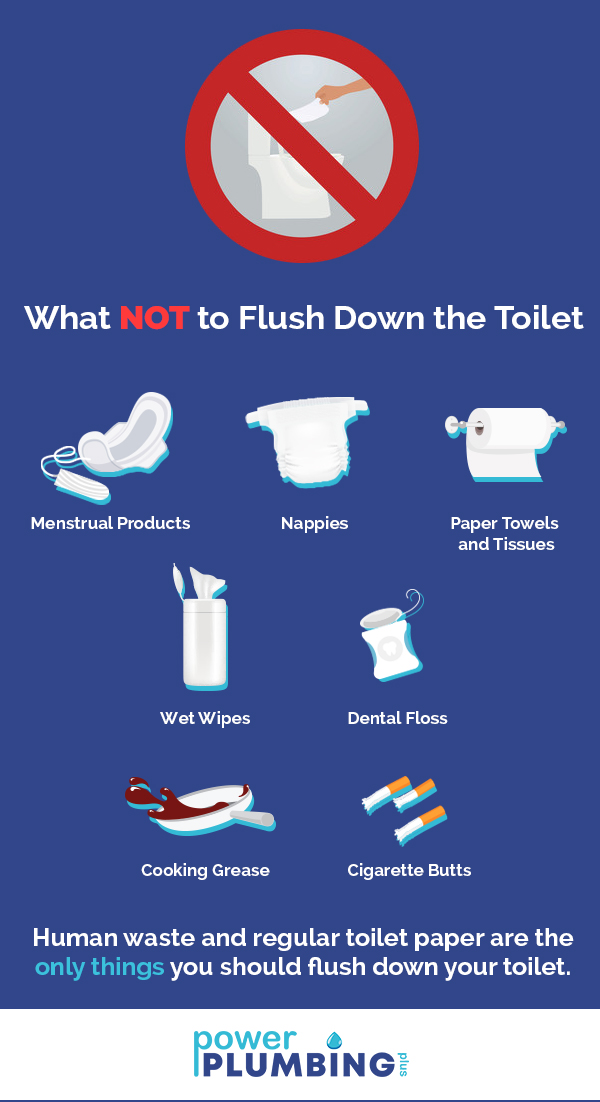
COVID-19 Panic: What Not to Flush Down the Toilet
Know what you can and can’t flush down the toilet in Australia. With all that is going on in the world, keep in mind that blocked pipes can cause havoc in your home. Within a space of three to four months, the novel corona-virus, otherwise known as COVID-19, has hit almost every region in the world, including Melbourne, Australia. The outbreak is so rampant that the World Health Organisation has proclaimed COVID-19 as a pandemic.
Considering that the virus is transmitted through body contact, sneezing, and coughing, people have been advised to stay at home. By so doing, it’ll help contain the spread pending an effective treatment becoming available.
As a result, people have started panic-buying several household goods, ranging from pantry food, to pasta and toiletries. Since almost everyone is now staying indoors, more people are at home, using the toilet more than ever and that means more blockages are likely to occur in your pipes. The resultant effect could be countless blocked toilets unless everybody is on the same page with knowing what not to flush down the toilet.
What can be Flushed?
This possibility becomes even more worrisome when you realise that many people don’t understand what should be flushed down the toilet and what should be disposed of in the garbage.
Plumbers know about things falling into toilets. In fact, plumbers around the world regularly clear foreign objects out of toilets and pipes due to people flushing them. Items ranging from mobile phones, credit cards, baby wipes to paper towels, many plumbers have reported various ridiculous solid and semi-solid wastes excavated from the sewage system.
Flushing such materials down the toilet accumulates and causes damage the pipes and waste infrastructure over time. Ultimately, it can cause environmental pollution – not to mention the plumbers bill and the embarrassment that it will bring to the house owners.
If you would like to avoid the issue of a blocked toilet in Melbourne or beyond, most especially in this period where more paper towels and wet wipes are being flushed down the toilets, endeavour to drop the following materials in your garbage can and NOT the toilet:
Menstrual Products
In this pandemic period, many women may be tempted to flush their menstrual products down the toilet more than ever. However, you’ll be doing your toilet and pipes more harm than good if you do so. Menstrual products such as tampons and pads cause major problems and cause blockages to quickly form under your house.
The damage this can cause is both expensive and avoidable. You should refrain from flushing any of these types of products down the toilet as they only absorb water – and they do not break down like toilet paper is designed to do. So, as the products travel through the pipes, they easily expand and clump together with other similar materials to cause major blockages which have to be removed by plumbers.
Nappies
Many plumbers will tell you that that some people seem to use their toilet as rubbish disposal to get rid of things that they should never put down there. Among this type of rubbish is nappies. Most people would not even think to put a nappy down the toilet; however, some people still manage to try. Similar to the menstrual products discussed earlier, nappies tend to expand when they come in contact with water. They do not break down, they simply stay the same shape, only they become larger.
Once the nappies expand, it’ll be difficult to pass through the drain and they get stuck on protruding tree roots and other things inside the pipes and cause a blockage. So, most likely, by flushing this type of thing, you will cause a blockage somewhere as the nappy makes its way to the water treatment plant inside the pipes. If you don’t want to accrue a huge plumbing bill, you are best advised to refrain from flushing nappies down the toilet.
Paper Towels and Facial Tissues
Due to the shortage of toilet paper on many supermarket shelves, many Australians have resorted to using tissues and paper towels to clean themselves up. This is causing a lot of extra pressure on our underground plumbing. Paper towels and tissues are two materials that should not be flushed down the drain.
Most people feel that paper towels and tissues are not entirely different from the toilet paper. However, the truth is that they are not made to break down as toilet paper will do which causes numerous problems including blockages in public systems. So, if you have no other choice but to use paper towels and tissues, ensure that you drop them in the garbage can after use. Never flush them.

Wet Wipes
Here is another commonly used material that you should not flush, but many often throw into the toilet. Indeed, some of these wipes are marketed as being a flushable product, however they are not.
When they are flushed, they usually cause clogs in the pipes as they do not break apart during the flushing process.
The reason is that most so-called “flush-able wipes” are made stronger than toilet paper and are designed to be used wet, which means they have to be more durable than paper.
While toilet paper will disintegrate upon flushing, these moist towels hold their shape causing a multitude of problems. Eventually, it will result in plumbing problems, such as blocked toilets and clogged pipes.
Dental Floss
Not many people remember to advise against draining dental floss down the toilet – until they have to pay heavily. Nylon or Teflon is the major component of dental floss; none of the two materials is biodegradable.
Since it doesn’t break down, dental floss eventually causes severe clogs in the pipe as they can wrap up hair, toilet paper, wipes and tampons, bringing them all together into a large lump which causes a solid blockage in underground pipes.
Plumbers report that faecal matter is usually found wrapped in dental floss while excavating septic tanks. Again, you should refrain from flushing dental floss down your toilets – instead, make use of rubbish disposal.
Cooking Grease
Some people feel that since cooking grease is liquid, it can easily pass through the pipes into the septic tank – this is not exactly the case. In fact, grease can create a clogged pipe problem within a very short time. Although fats and oil will go through the toilet as a liquid, under colder temperatures, they will solidify into slimy clumps. These clumps are dangerous to your sewer system as they will clump together with other materials as well causing what is known as a fatberg. So, rather than flushing cooking grease down the toilet, you should let it cool in the pan, then use a paper towel to wipe it into the garbage can. Also, if the cooking grease is clean and without too much food debris, you can let it cool and keep inside your refrigerator for reuse. The taste will be outstanding.
Cigarette Butts
Regardless of the circumstance, you should refrain from flushing cigarette butts down the toilet. Cigarettes contains nasty chemicals that can contaminate water sources. Besides, the chemicals can endanger the lives of animals such as fish and other marine life. This happens because the butt itself does not break down. In fact, a cigarette butt can take over ten years to decompose.
Over time, it will affect the environment as well. More so, they easily clump with other materials such as cotton balls, and all the above items to contribute to pipe blockages. If you don’t want to see your pipe blocked quickly, then you should always drop your cigarette butts in the garbage bin.
Conclusion
Before we conclude, always remember that the only materials that should pass through your toilet are human waste and regular toilet paper – everything else should go to the garbage can. Everybody needs to know what not to flush down the toilet so everybody can do the same thing. Even wet wipes and baby wipes that are difficult to break down should be dropped in the bin. When you adhere to all these recommendations, you’ll be saving yourself from unnecessary large plumbing bills due to blocked toilets and the troubles of fixing plumbing issues on your property. The graphic below is ideal for you to print out and hang up in your toilet. To print it, simply right click and press ‘print’.


 Our priority is the safety of our customers and staff. We are operating under the guidelines from the World Health Organisation. We are taking appropriate action as new information comes to light. Please contact us if you have any questions.
Our priority is the safety of our customers and staff. We are operating under the guidelines from the World Health Organisation. We are taking appropriate action as new information comes to light. Please contact us if you have any questions.